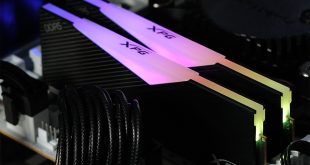The HTC One X has Nvidia’s Tegra 3 chipset inside which includes four ARM Cortex-A9 cores clocked at 1.5 GHz (max). However, due to some aggressive CPU governor settings in the HTC provided kernels the cores rarely reach 1.5 GHz in the quest for extended battery life. This is somewhat of a desperate battle when the chip is produced on a 40nm process rather than the 32/28nm lines Samsung and Qualcomm are taking advantage of.
Regardless of this, the Tegra 3 chip in the One X has a maximum clock speed 100 MHz higher than the Asus Transformer Prime we reviewed last month – which comes as a surprise considering it is a phone that is over 4 times lighter than the tablet. Occasionally the rear of the phone does heat up around the camera sensor while gaming but even then it does not cause much concern. In addition to this there is a full gigabyte of RAM, of which roughly 980 MB is dedicated to the user. This is more than other smartphones with one gigabyte of RAM as the ULP Geforce GPU has its own dedicated VRAM.

There is also 32 GB of internal storage, of which 2.11 GB is available for applications and 25.24 GB is for media and file storage. There is no MicroSD slot which may annoy some people to the point they will not purchase the One X. Personally, after a month of usage I have only used roughly 25% of both the app and file storage partitions.
Hardware Benchmarks
We ran the benchmarks on both the 1.26 and 1.29 firmware versions but there was no major difference between results so the results you see are from the latest 1.29 firmware.
In all of our tests the One X beats the Transformer Prime by small margins, and in the case of Linpack Single Threaded performance the One X’s win was noticeable. It also comfortably wins against the dual core OMAP processor found in the Motorola Atrix 2.
We’re also starting to get vertical sync limited results in GLBenchmark so from now on we’ll be including offscreen results as well.
As far as pure benchmark performance is concerned the HTC One X currently takes the lead, something that is bound to change once we got our hands on Samsung’s Exynos 4412 found in the Galaxy S III.
Browser Benchmarks
We ran our browser benchmarks on the stock HTC browser rather than Chrome or Opera for better comparative testing.
The One X and Transformer Prime are neck to neck in Browsermark, afterall they are powered by the same chipset.. The HTC has a small lead but it is well within any margin of error. It again wins in Peacekeeper with marginal wins over the Huawei MediaPad and Motorola Atrix 2.
Javascript performance is impressive on the One X; it is our first device to break the 2000ms barrier in Sunspider’s test. In Vellamo, a Qualcomm produced benchmark, the One X takes its biggest lead in the browser benches.
 KitGuru KitGuru.net – Tech News | Hardware News | Hardware Reviews | IOS | Mobile | Gaming | Graphics Cards
KitGuru KitGuru.net – Tech News | Hardware News | Hardware Reviews | IOS | Mobile | Gaming | Graphics Cards












wow thats a lot of information for a phone. I need a new one, but had been thinking about an Apple iPhone due to store support. What do you think? bad move?
Looks very nice indeed. never owned an HTC phone before as my friend had one a year ago and it just stopped working for some reason, he got it replaced buyt the battery life was terrible.
Neil, do you mean support in terms of customer/returns or the app store? If you’re in the US then Apple will likely have superior customer support, can’t speak for other regions. If you mean the app store then both iOS and Android are on the same level
Joseph, HTC hasn’t exactly been known for brilliant battery life to be fair! The One X’s battery life is a bit average – especially after getting a Galaxy S III as a comparison
it’s a fantastic phone,wonderful apps,slim style overall excellent telephone sound is beautiful but there’s few points that are difficult to manage so if they’re able to handle that within the software it will likely be great but overall an outstanding phone